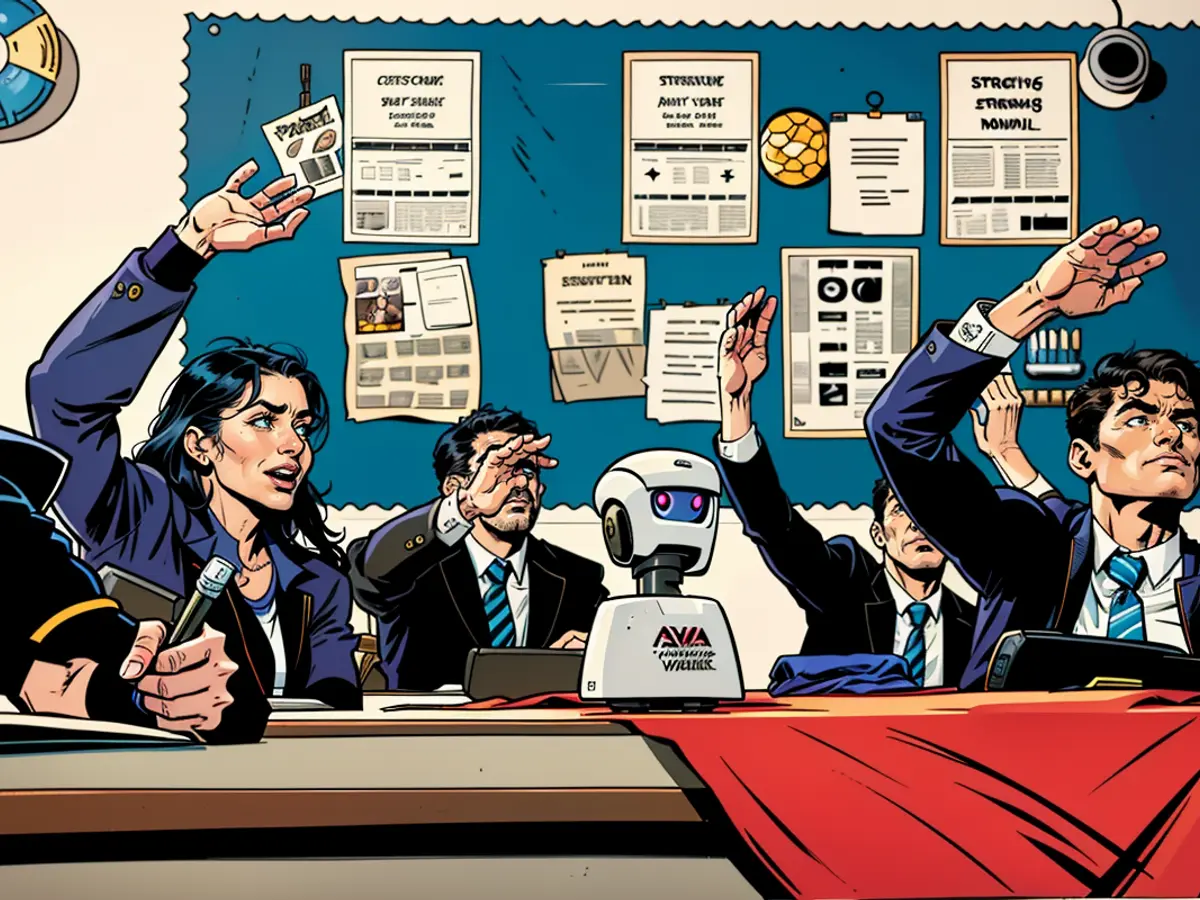This tiny robotic aid is facilitating sick children's school attendance.
For individuals dealing with extended health issues or treatment, particularly those facing mental health challenges, Norwegian corporation No Isolation constructed the AV1 device. This gadget serves as a stand-in for a student in class, actuating as their eyes, ears, and voice, thereby helping them maintain relationships with their peers and remain connected.
The AV1 has a minimalistic humanoid appearance, with a head and torso, that rotates 360 degrees. It is equipped with a camera, microphone, and speaker. Teachers position it on a classroom desk, and students control it via an app using a unique password.
Florence Salisbury, No Isolation's marketing director, explains, "They can swipe or tap their finger around the screen to observe different areas of the classroom." The student can communicate with the teacher or classmates through the speaker, and the app features a "raise hand" option, which illuminates a light on the robot's head. Emojis may also be selected to display in the robot's eyes.
Salisbury shares that there are approximately 3,000 active AV1 units in 17 countries, predominantly in the UK and Germany, both with over 1,000 units in use.
In the UK, schools can rent the AV1 for around £150 ($200) per month, or choose a one-time purchase for £3,700 (approximately $4,960), together with an annual service package of £780 (around $1,045).
According to recently published UK government statistics, over 19% of students were persistently absent from school in autumn 2023/24, with 7.8% absent due to illness alone, a higher rate than pre-pandemic levels.
During the pandemic, remote learning became the norm, but upon returning to school, many found it no longer an option. AV1 was introduced before the pandemic but some schools have reported using the robots to assist students struggling to readjust to the classroom environment.

Salisbury comments, "They make the child feel significant." The UK's Chartwell Cancer Trust supplies 25 AV1 robots to children with serious ailments. Michael Douglas, a trustee, stated that the robots enable children to engage with their education even while in critical care and are highly regarded by parents.
However, he highlighted that several administrative difficulties can arise in using the robots and that red tape can be a hurdle when introducing the AV1 system into schools or hospitals. He also mentioned that some schools may experience technical infrastructure problems, such as weak Wi-Fi or mobile signal dead zones.
The research paper published in Frontiers in Digital Health in June, examined the use of AV1 in Germany and OriHime avatar robot in Japan, finding the technologies "hold high potential for children to remain socially and educationally connected." However, it also stressed the necessity for establishing structures to ensure equal avatar technology access and held that teacher training on the technical and social aspects of the robots would be essential for successful implementation.
Last August, No Isolation introduced AV1 Academy, a collection of training materials and resources aimed at enhancing robot usability. Salisbury emphasizes that the AV1 is designed with strong privacy features. No personal data is collected, and the app prohibits screenshots or recordings. Encryption secures the livestream, and only one device can connect at a time, with the robot signaling active use through its head and eyes lighting up.
Salisbury also highlights that there are other avatar robots on the market, like VGo and Buddy, which have wheels and can navigate schools or workplaces, and some have a screen that displays the user's face. She notes that the lack of wheels in AV1 is more practical for its use, and at around 1 kilogram, the robot is lightweight and easy for teachers or students to transport in a custom-designed backpack.
She added that the absence of a screen displaying the child's face can also be beneficial. "Eliminating the pressure to always be on camera has shown to increase the likelihood of the robot being used for students suffering from emotion-based school avoidance," Salisbury said.

The AV1 device, popular in the tech industry, is also equipped with features that make it suitable for educational settings. Companies like VGo and Buddy, with wheeled avatar robots, offer alternative solutions, but No Isolation's AV1 stands out with its minimalistic design and strong privacy features.
In order to expand the use of AV1 in schools and healthcare facilities, it's important to address and overcome the administrative challenges and technical infrastructure issues that some institutions may face.








